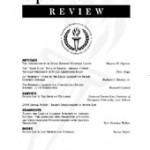
Much of the attention following yesterday’s decision in Siefert v. Alexander focuses upon the invalidation of prohibitions against judges or judicial candidates belonging to political parties and endorsing partisan candidates for office. That part of Judge Crabb’s decision seems to me, given the balance between regulatory interests and the protection of speech struck by the United States Supreme Court in Republican Party v. White, to be clearly correct.
And not, in my view, very momentous. Many judges have prejudicial partisan affiliations and, in highly salient elections, it is not hard for the public to discern whether a candidate is a Republican or Democrat. In fact, one could argue that allowing candidates to claim partisan affiliation is a relatively efficient way to provide pertinent information to voters in campaigns where discussion of the issues is difficult and often cramped by legal and customary restrictions. It’s not that we expect judges to rule in whatever way their party wants (although, as Judge Crabb points out, the prior partisan affiliation of federal judges is strongly correlated with voting patterns), but that partisan affiliation may tell us something (admittedly broad and general) about a candidate’s judicial philosophy.
More significant, it seems to me, is that part of the decision striking down the Code of Judicial Conduct’s prohibition against the personal solicitation of funds by judges and judicial candidates.
 Congratulations to the editors and staff of the Marquette Sports Law Review for producing Volume 19, No. 1 (Fall 2008), which is an excellent symposium issue on “Doping in Sports: Legal and Ethical Issues.” Information about how to obtain a copy of this issue is avaiable here. The symposium issue includes the following:
Congratulations to the editors and staff of the Marquette Sports Law Review for producing Volume 19, No. 1 (Fall 2008), which is an excellent symposium issue on “Doping in Sports: Legal and Ethical Issues.” Information about how to obtain a copy of this issue is avaiable here. The symposium issue includes the following:

